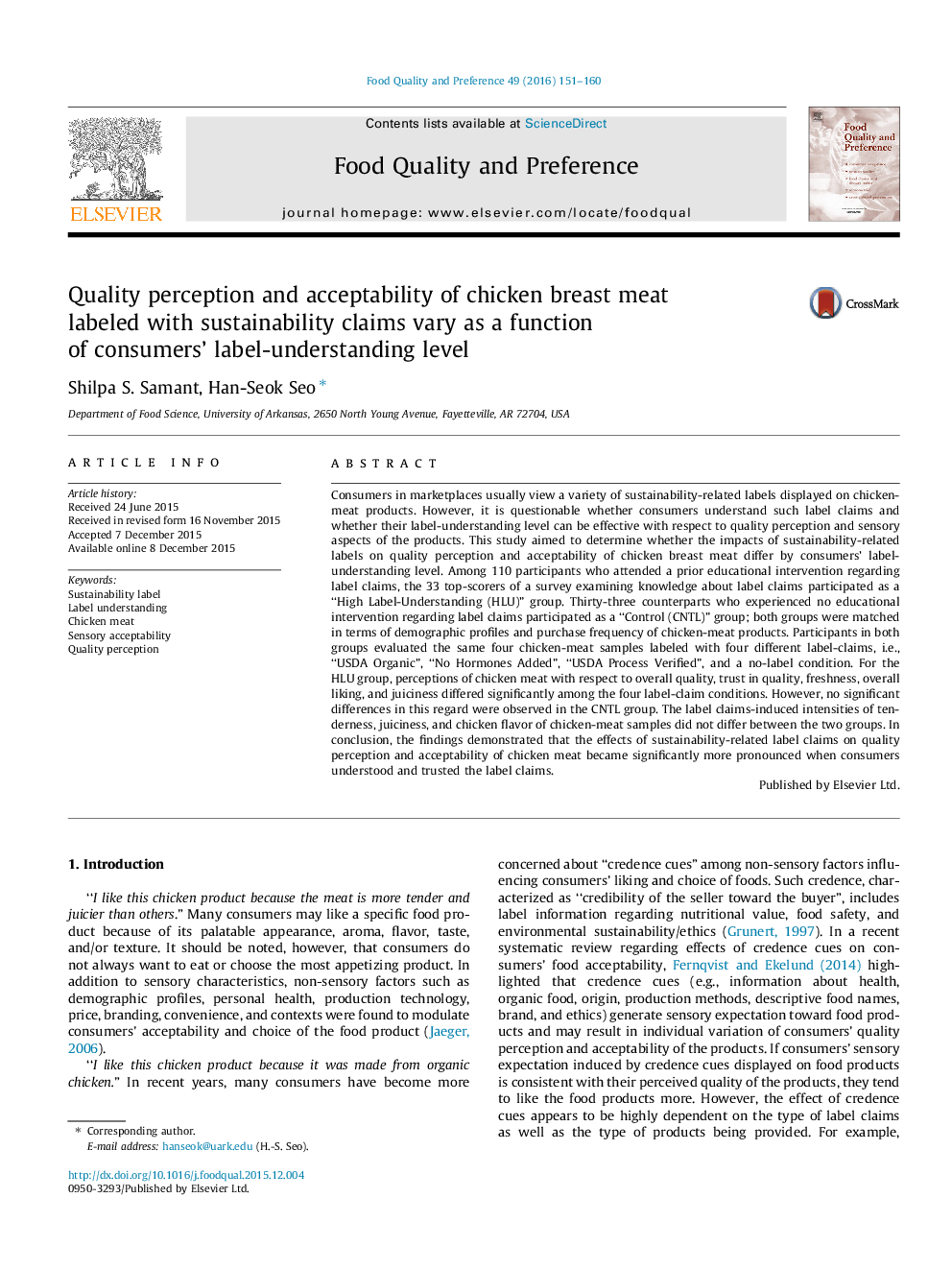| کد مقاله | کد نشریه | سال انتشار | مقاله انگلیسی | نسخه تمام متن |
|---|---|---|---|---|
| 6261280 | 1613150 | 2016 | 10 صفحه PDF | دانلود رایگان |

- Sustainability labels increase quality perception and acceptability of chicken meat.
- The label effect is pronounced when consumers are well informed about the label.
- The label effect on quality perception and acceptability varies by label-claim type.
- Sustainability labels showed little impact on sensory intensity of chicken meat.
Consumers in marketplaces usually view a variety of sustainability-related labels displayed on chicken-meat products. However, it is questionable whether consumers understand such label claims and whether their label-understanding level can be effective with respect to quality perception and sensory aspects of the products. This study aimed to determine whether the impacts of sustainability-related labels on quality perception and acceptability of chicken breast meat differ by consumers' label-understanding level. Among 110 participants who attended a prior educational intervention regarding label claims, the 33 top-scorers of a survey examining knowledge about label claims participated as a “High Label-Understanding (HLU)” group. Thirty-three counterparts who experienced no educational intervention regarding label claims participated as a “Control (CNTL)” group; both groups were matched in terms of demographic profiles and purchase frequency of chicken-meat products. Participants in both groups evaluated the same four chicken-meat samples labeled with four different label-claims, i.e., “USDA Organic”, “No Hormones Added”, “USDA Process Verified”, and a no-label condition. For the HLU group, perceptions of chicken meat with respect to overall quality, trust in quality, freshness, overall liking, and juiciness differed significantly among the four label-claim conditions. However, no significant differences in this regard were observed in the CNTL group. The label claims-induced intensities of tenderness, juiciness, and chicken flavor of chicken-meat samples did not differ between the two groups. In conclusion, the findings demonstrated that the effects of sustainability-related label claims on quality perception and acceptability of chicken meat became significantly more pronounced when consumers understood and trusted the label claims.
Journal: Food Quality and Preference - Volume 49, April 2016, Pages 151-160